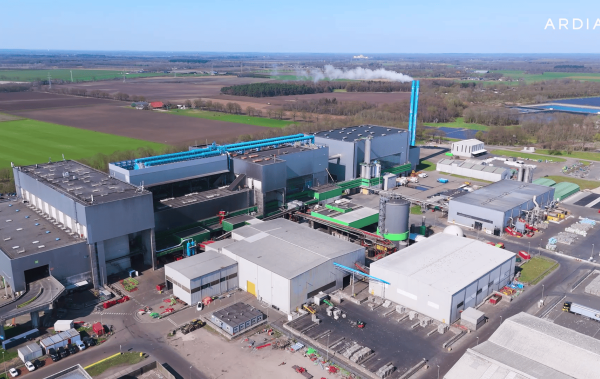Inside the carve-out of Expleo
Growth stories
Inside the carve-out of Expleo
-
15 December 2021
-
Private Equity
-
Buyout
Reading time: 9 minutes
Despite a fall in overall M&A activity through 2020 as a result of Covid-19 uncertainty, corporate carve-out activity continued at pace as corporates reassessed their strategic priorities and focused on core business in response to the pandemic.
Some of the largest M&A transactions during the last twelve months - including Kraft Heinz offloading its cheese business, ThyssenKrupp selling its elevators division, Coty divesting its retail hair arm and BP exiting a petrochemicals portfolio - have been carve-outs.
Private equity funds have been among the most active investors in the wave of carve-outs, which have provided a steady source of primary deal flow in a competitive market.
According to research by law firm Mayer Brown, private equity-backed carve-out deals saw a marked increase in 2020. In the UK alone private equity carve-out deal value increased more than ten-fold from £765 million in 2019 to £10.1 billion in 2020, with deal volume doubling from seven to 14.
The increase in corporate divestment activity over the last twelve months has been driven by the fall-out from the pandemic. The catalysts for carve-out activity, including strategic divestment of non-core assets or debt reduction, have been amplified through the Covid-19 dislocation period. All corporates have had to pay closer attention to cash and balance sheets and focus on their most profitable core operations. In some sectors, such as energy and oil & gas, carve-out deals have been an important lever for companies as they realign their organizations in line with global ambitions to achieve net zero carbon emissions by 2050.
Deals with a difference
Carve-outs can provide a rich seam of transaction flow for private equity firms through periods when other deal sources face fluctuations and volatility, as observed over the last months. There also is evidence to suggest that carve-out transactions deliver strong returns – another attraction of carve-out situations for sponsors.
According to a study by accounting firm EY, investments in carve-outs offer lower entry multiples for private equity firms when compared to other buyouts, which in turn leads to higher returns on exit. EY analysed the performance of around 700 private equity-backed carve-out deals done between 2015 and 2019 and found that returns from carve-out deals exceeded the average internal rate of return (IRR) of 14.1% delivered by the private equity industry as a whole.
Carve-out deals, however, are not a one-way ticket and do require specific experience on the part of a financial sponsor to execute successfully. Indeed, in its analysis EY noted ‘huge variance’ in returns across its sample. While most of the deals it looked at delivered IRRs in the 30% to 50% range, some carve-outs did result in in negative returns.
Ardian Managing Director Lise Fauconnier, who has worked on a number of carve-out deals through the course of her career, including the acquisition of the global product solutions division of listed engineering company Assystem, subsequently rebranded as Expleo, says carve-out deals involve complexities and timelines that differ significantly from primary and secondary buyouts.
Carve-out deals have unique characteristics. Origination, deal processes, due diligence, deal structuring and post-deal planning are very different to what you see when buying an independent company. Carve-outs require a thoughtful approach and particular capabilities.
A combination of sector expertise, a strong relationship with the divesting corporate’s management team and willingness to work through a longer-than-normal deal process are some of the distinctive pre-requisites for carve-out success.
Fauconnier recalls meeting with Assystem chairman and CEO Dominique Louis in the late 1990s and fostering a relationship with the company over a number of years before the opportunity to do the deal for Expleo opened up in 2017. Ardian’s track record and knowledge of the engineering sector was also crucial in the origination of the transactions.
Corporates want to work with a partner they can trust. Valuation is important but finding a good home for an asset is also a priority, so sector expertise and a good relationship with management teams are essential.
Flexibility and creativity around deal structure are also important. Corporates often want to retain sizeable stakes in carved-out divisions to gain exposure to any post-deal upside or maintain links to a divested asset that will continue to serve as a key supplier after the carve-out. In the case of Expleo, a carve-out was seen as key part of the division’s growth plans.
“Assystem recognised a build-up strategy as a powerful way to grow its global product solutions division. Executing the buy-and-build would be easier if the division was operating as standalone entity, so although Assystem wanted to sell, they wanted to stay involved with the business,” Fauconnier says. “We structured the deal with Assystem retaining a 40% stake, which was important for the vendor.”
With Assystem retaining a meaningful stake in Expleo, the relationship with Ardian has allowed the company to remain close and productive. Assystem, for example, played an important role in the recruitment of Rajesh Krishnamurthy as Expleo’s CEO in June 2020 to replace the outgoing Olivier Aldrin, who had overseen the first phase of Expleo’s development as an independent company.
“In a previous role I was President at IT consultancy Infosys and met Dominique Louis around 2015 when Assystem was looking at doing a deal with Infosys. The deal didn’t go ahead in the end, but Dominique and I stayed in touch and the opportunity to take the CEO role at Expleo came up as a result of that,” Krishnamurthy says.
Maintaining connections with the parent company post-deal can also provide a source of expertise, culture and support as a carved-out entity builds up its operational infrastructure as an independent business.
“A carve-out can be a tricky business,” Krishnamurthy says. “There is the challenge of retaining the culture and identity of the business. You also have to build up new management structures and redo the IT systems, finance and HR processes.
A carve-out is a transformative exercise that requires strong grasping of a number of details. Any support from the divesting corporate to help with the transition is invaluable.
Digging into due diligence
The complexities of the divestiture process also require a different approach to due diligence. It is not unusual for carve-out deals to be done on a bilateral basis, without the involvement of intermediaries, which requires prospective buyers to build financial models and due diligence packs themselves.
Also, rather than assessing an asset that will not change much from an operational perspective post-deal, buyers have to be able to assign value to a company that has not had its own IT, legal or HR function previously. Ascribing value to an entity that has never traded as a stand-alone business is a crucial capability for sponsors taking on carve-out transactions.
“The due diligence for the Expleo deal took three months,” Fauconnier says. “there was no vendor due diligence package. As a buyer it was down to us to model the earnings of what the company would look like as a stand-alone business and factor in how the business would perform when carrying the central costs of its own IT, finance, HR and management teams.”
Fauconnier adds that it was also important that Ardian was able to articulate a long-term strategy and vision for Expleo as an independent company.
Buy-and-build was a big part of the plan, and through its hold Ardian has acquired and added SQS, Moorhouse Consulting and Stirling Dynamics to the Expleo platform. In 2019, the business previously known as Assystem Technologies was rebranded as Expleo, with all of its affiliates relaunched under the Expleo brand.
Under Krishnamurthy’s leadership, Expleo is now moving into the next phase of its development.
“With integration of the bolt-on deals complete and an organisational structure in place Expleo is now focused on pivoting the sales function to be international, making the best use of low-cost off-shore services where appropriate and the digitalisation of its services, which will fully harness its outstanding engineering capability.” Krishnamurthy says. “Covid-19 has posed challenges for the business, but the digitalisation and global-facing sales strategy has supported a strong rebound in revenues, which in 2021 are growing in the double digits year-on-year.”





